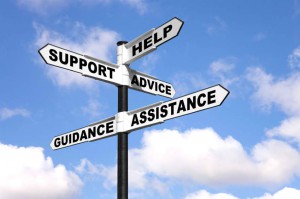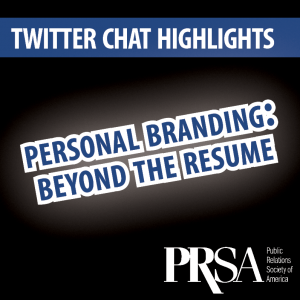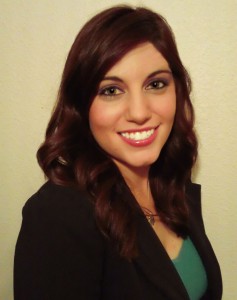 Millennials are taking America and its workforce by storm. We’re a generation 80 million strong and make up the largest age group in our nation’s history. We represent one in every three U.S. employees and will comprise 75 percent of the global workforce by 2025.
Millennials are taking America and its workforce by storm. We’re a generation 80 million strong and make up the largest age group in our nation’s history. We represent one in every three U.S. employees and will comprise 75 percent of the global workforce by 2025.
As we’ve grown in number and professional rank, sohave the stereotypes surrounding us. I’m here to show how our supposedly lazy, entitled and self-involved generation can debunk these misnomers and spin them into positives in our professional lives.
First and foremost, Millennials are anything but lazy. Multiple internships are all but expected to get any kind of job after college, which was certainly the case for me. Since many of us are unwilling to settle for a job outside of our industry, we’re often forced to complete free and sometimes prolonged post-graduate internships in order to land that full-time gig. (We’ve all watched GIRLS, right?) Frankly, I know few people in this field who have gotten where they are without doing one.
Doing these kinds of internships have taught us the value of hard work, sacrifice and building the all-important connections required to work our way up. After getting our foot in the door, we have learned how to effectively network and can now more fully appreciate finally landing that full-time position.
And besides, if we were so ambivalent about our futures, would young pros like me be taking the time to contribute to this blog?
Millennials have often found that there’s no one direct path to full-time work either. Our peers are taking on post-grad teaching and volunteer experiences like never before. As I can personally attest to, whether it’s the Peace Corps or Teach for America, many of us are giving back and in the process honing valuable life skills like adaptability, integrity and resilience that employers are demanding these days.
It’s this type of altruism that helps discredit the “selfish” label that’s habitually applied to our generation. Sure, taking that next step in our careers is always top of mind, but that doesn’t mean that we’re focused so fully on ourselves that we’re incapable of working with our colleagues. In fact, we thrive in collaboration, particularly as a result of our variety of internship experiences and the many group projects we completed during our college years.
Millennials actually make up a relationship generation in the sense that we’re concerned less about ourselves than building connections with those around us in the workplace. And yes, many of us are still living under our parents’ roofs (nothing wrong with saving some money and paying off those student loans!), but we’re often nowhere near college friends and many of us have moved away altogether, so finding a work family and the right fit culture-wise are foremost concerns. Playing up these values, which lead us to remain at our respective workplaces for longer than we’re given credit, and our ability to collaborate are key when marketing ourselves to potential employers.
A sense of entitlement is often associated with our generation as well. While we’re confident and many times precocious, we can at the same time acknowledge that we’re not likely to land our dream job right out of college, or in our twenties or thirties for that matter. As evidenced by our years spent as interns and entry-level employees, we recognize the reality of working our way up the professional ladder.
And while career advancement is important to us, money isn’t always the most significant factor in climbing the ladder. As mentioned earlier, we know how to network and clearly understand the power of leveraging professional connections. In fact, according to a recent report by Bentley University, 84 percent of us are willing to make a lateral move for more experience or better connections and 53 percent would take a lower-paying or even unpaid position to attain the same.
We Millennials aren’t impatient or money hungry so much as simply eager to advance our careers and cognizant of how to do it. And while we have definitive professional ambitions and are determined to work ardently to fulfill them, we still hold strong personal values such as time allocation and cultivating non-work relationships that help us stay equally as focused on maintaining a life beyond our office walls. In this light, we would be wise to keep perspective and remain willing to take different paths to higher-level or leadership positions than senior members in our offices who had to make significant sacrifices like long hours and time away from their families to get to where they are today.
So with all this said, Millennials must not feed into the many stereotypes out there about us, but instead embrace the positive aspects of our increasingly influential generation. We have to remain assiduous yet assured and continue striving to find that balance between tackling professional goals and living out our personal values. Focusing on the qualities that make us uniquely “Millennial” is a definite step in making this life a reality.
 Zach Burrus is a marketing analyst at SHIFT Communications, a public relations agency based in Boston. He is an active member of PRSA Boston and the PRSA New Professionals Section. Connect with Zach on Twitter and LinkedIn.
Zach Burrus is a marketing analyst at SHIFT Communications, a public relations agency based in Boston. He is an active member of PRSA Boston and the PRSA New Professionals Section. Connect with Zach on Twitter and LinkedIn.

 Working with the media is a huge part of any PR career.
Working with the media is a huge part of any PR career. Nelli Tokleh is an assistant account executive at Nunez PR Group in Dallas. She received her undergraduate degree in public relations from the University of North Texas and her Master’s in Business Administration from Texas Woman’s University. Nelli is an active board member at PRSA Dallas and enjoys traveling, shopping and blogging about fashion and food. Connect with her on
Nelli Tokleh is an assistant account executive at Nunez PR Group in Dallas. She received her undergraduate degree in public relations from the University of North Texas and her Master’s in Business Administration from Texas Woman’s University. Nelli is an active board member at PRSA Dallas and enjoys traveling, shopping and blogging about fashion and food. Connect with her on 




